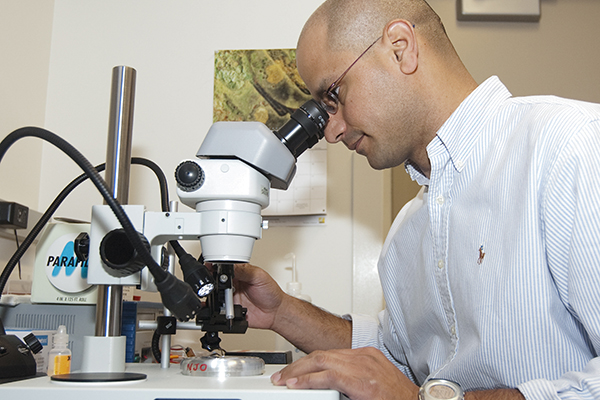 To study living systems, we must take them apart to identify and manipulate the pieces. But to understand, explain, predict and engineer living systems, we must use models to fit the pieces back together again.
To study living systems, we must take them apart to identify and manipulate the pieces. But to understand, explain, predict and engineer living systems, we must use models to fit the pieces back together again.More successful and effective investigations and interventions on biological systems — from macromolecules to ecosystems — demand new concepts, new vocabularies and new skills that cut across traditional disciplines.
A QSB degree offers quantitative training to suit your preparation and needs, an interdisciplinary cohort of students and faculty to build your confidence working in collaborative cross-disciplinary teams, and the opportunity to master the concepts and technology of modern biological research.
As the defining focus of a biology graduate program, Quantitative and Systems Biology aims to accelerate the pace at which paradigm-shifting discoveries transform biology.
The QSB graduate program has strengths in six particular areas within Biology:
- Molecular, Cellular, and Developmental Biology
- Developmental Mechanisms
- Physiological Systems and Metabolomics
- Stem Cell Biology and Regeneration
- Neurobiology
- Evolution and Ecology
- Ecosystem Ecology
- Evolutionary Developmental Biology
- Genomics
- Global Change and Adaptation
- Symbiosis
- Organismal and Integrative Biology
- Population Ecology and Dynamics
- Biochemistry, Biophysics, and Bioengineering
- Structural Biology
- Cell and Tissue Engineering
- Synthetic Biology
- Computational and Mathematical Biology
- Molecular Systems Biology
- Theoretical Biology and Modeling
- Computational Evolutionary Biology and Bioinformatics
- Microbiology and Immunology
- Biology of Microbial Communities
- Microbial Pathogenesis and Infectious Disease
- Biological and Medical Education
Explore our faculty and their labs to learn more about the research happening in QSB!

